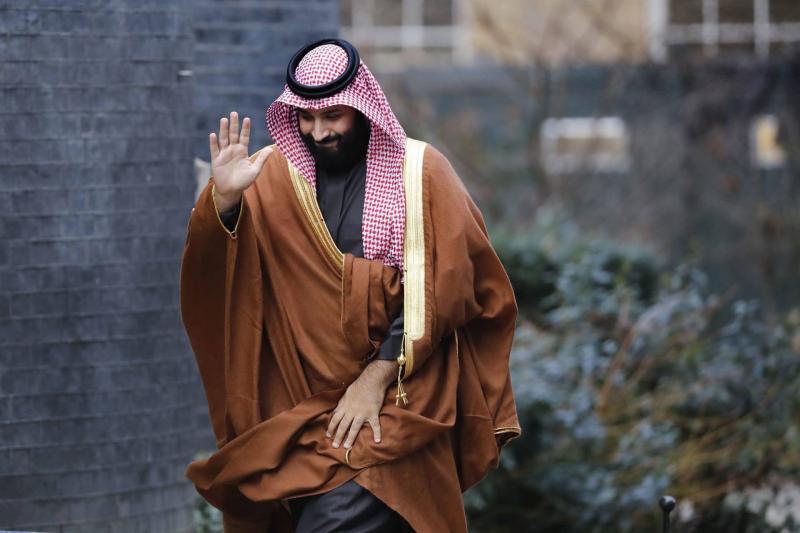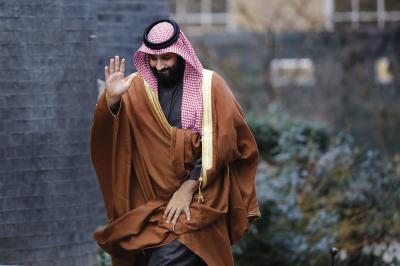The Saudi Crown Prince, Mohammed bin Salman, informed American lawmakers that he is at risk of assassination, a threat that the newspaper suggests he may leverage to push the United States to pressure Israel regarding a future Palestinian state. This was literally stated in a Politico article, which mentioned that the Saudi prince clarified to members of the U.S. Congress that he is putting his life on the line by seeking a major deal with the United States and Israel that includes normalizing Saudi-Israeli relations.
The article noted that on at least one occasion, he referenced the assassination of Anwar Sadat, the Egyptian president who was killed after signing a peace agreement with Israel, questioning what the United States did to protect him. He also discussed the threats he faces, explaining why any such deal should include a genuine pathway to a Palestinian state, especially now that the war in Gaza has exacerbated Arab anger towards Israel.
The article quoted a former U.S. official familiar with the discussions and two others aware of them, who stated that these discussions were serious and important. However, one conclusion drawn by the individuals is that the Saudi crown prince seems determined to strike the major deal with the U.S. and Israel despite the associated risks, especially since he sees it as crucial for his country's future.
It outlined the broad terms of the secret agreement still under development, indicating that it includes multiple U.S. commitments to the Saudis, including security guarantees through a treaty, assistance with a civilian nuclear program, and economic investment in areas such as technology. According to some reports, in exchange, Saudi Arabia will limit its dealings with China and establish diplomatic relations with Israel, which would be a significant advantage for the Israelis given the kingdom's importance among Islamic nations.
However, the article clarified that what troubled Prince Mohammed bin Salman was that the Israeli government was unwilling to include a reliable path to a Palestinian state in the agreement. One person familiar with the discussions Prince Mohammed had with regional and American leaders told the newspaper: "He stated it as follows: (The Saudis care deeply about this issue, and the street throughout the Middle East cares deeply about this matter, and my mandate as the guardian of Islam's holy sites will not be safe if I do not address the most pressing issue of justice in our region)."
The newspaper article views Prince Mohammed bin Salman’s framing of the situation as a smart diplomatic marketing strategy, stating that he claims his life is at risk to urge U.S. officials to increase pressure on Israel to reach a deal that satisfies him. In this context, claiming that one risks their life for a potentially historic deal is certainly a compelling way to attract the attention of interlocutors.
However, the article concluded that it is fair to also state that making peace is a dangerous endeavor. This is especially true in the Middle East, where Prince Mohammed bin Salman had, even before the Gaza war, been gambling with the idea of establishing diplomatic relations with Israel. According to the article, Saudi representatives contacted were reluctant, as expected, to detail the crown prince's discussions. The Saudi embassy in Washington declined to comment to Politico.
It made clear that a senior Saudi official told the publication that Crown Prince Mohammed bin Salman believes that without resolving the Palestinian issue, his country will ultimately not reap the purported economic, technological, and military benefits of the comprehensive deal. This is because "we will not have regional security and stability without addressing the Palestinian issue," the official said.
He sees that "his comments made sense in the context of the image Mohammed bin Salman is presenting of himself as a Saudi nationalist, so whether he personally cares about the Palestinian issue or not, he will support it if it benefits Saudi Arabia."
The article noted that "the major deal being worked on could significantly change the Middle East, not least by seeing Israel and Saudi Arabia operate as a united front against Iran." However, with the upcoming U.S. presidential elections and the need for Senate approval on any treaty, the writer believes the deal will not become a reality any time soon. Still, she anticipates that whether the next president is former President Donald Trump or Vice President Kamala Harris, either will continue to seek the Saudi-Israeli normalization.
The article argues that so far there is little evidence that external pressures will change Israeli Prime Minister Benjamin Netanyahu's mind regarding a serious plan on how to deal with Gaza after the war, let alone with the Palestinians as a whole. Israeli officials responded to the article, stating, "We understand that the governments of the United States, Saudi Arabia, and Israel are all interested in discussing a deal that covers bilateral issues between the United States and Saudi Arabia and Israeli-Saudi normalization. However, this requires certain conditions to achieve such a deal, which are not all present currently."
Therefore, the newspaper article concluded that it is unclear whether Mohammed bin Salman’s strategy of emphasizing the risks he is taking will convince Netanyahu that he should also take risks.




